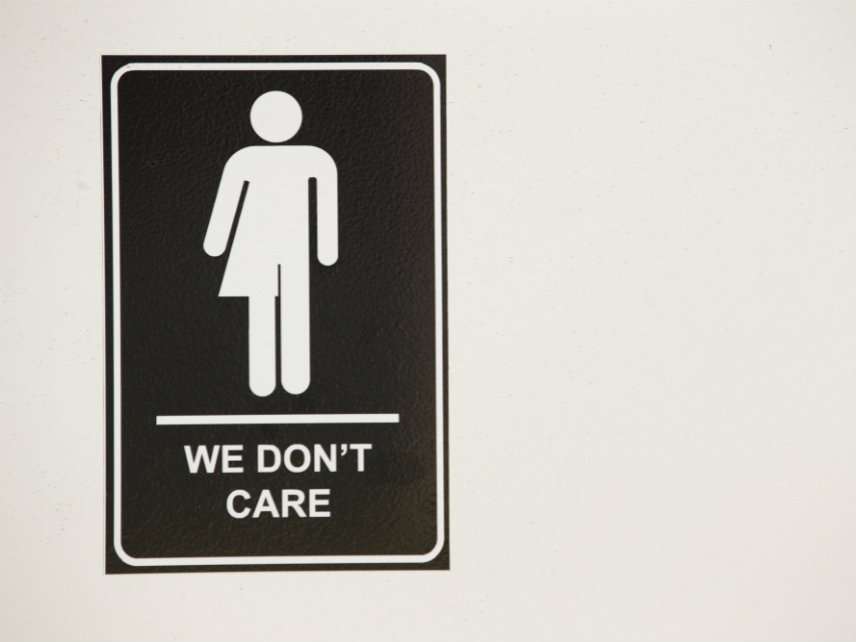California May Add Gender Category 'X' to State IDs. Good—Your Gender Isn't the Government's Business.
A no-gender option on state-issued documents is a very libertarian step.

California is poised to become the second American state to allow for a gender category "X" on state-issued documents such as driver's licenses. (Oregon became the first this past June.) The California change—which would go further than Oregon's by allowing "X" instead of "M" or "F" on birth certificates and other forms of official ID, not just licenses—was approved by the state legislature and now awaits the governor's approval.
The new non-binary category is being heralded—and slammed—as part of the growing U.S. movement for transgender rights and the recognition that many people don't fit comfortably into the gender roles and traits typically assigned to their sex. The latter has given rise to the growth of gender-neutral pronouns (they, ze) and self-descriptions (genderfluid, genderqueer, non-binary) among Americans, especially younger ones.
Libertarians—even those just fine with the gender binary and their place in it—should celebrate the change. It allows people more choice about how to define themselves in a way that is noncoercive and decreases government control.
Should D.C. ever give residents the option to essentially delist their sex/gender from their driver's license, I would do it. (At least, you know, the next time my license is up for renewal or if there was some sort of online option; I'm not crazy enough to subject myself to the Department of Motor Vehicles any more than necessary.) And I would hope anarchist, libertarian, and limited-government-supporting types of any sex or gender might do the same.
There is no good reason the state, its representatives, and the countless people tasked with checking IDs for one reason or another need to know every individual's gender or sex.
In Beyond Trans (which I reviewed in Reason's August/September issue), Heath Fogg Davis details the many objections people raise to this, then obliterates each one. For each purpose in which a need for sex/gender identification is assumed, Davis reveals a surveillance-state mindset, a status-quo prejudice, or social conservatism at the root—not a legitimate government purpose.
The bottom line for driver's licenses and the kinds of IDs we deal with on a daily basis is the old adage: A picture is worth 1,000 words. Whether someone identifies as male, female, or X doesn't matter so long as the photo on their ID looks like they do in person. Bouncers don't look to see if you're male or female; they check your age and photo. Airport agents check your photo and name. And so on.
Adding an X designation to state-issued IDs doesn't threaten to destroy gender as we know it, but it does say that it's none of the state's business—a rare decollectivizing move from politicians.
Davis doesn't think that this goes far enough: it "neither dismantles nor significantly challenges the bureaucratic use of the traditional sex binary," argues Beyond Trans. "These policies create exceptional categories." Rather than give people the option to choose "X" or some other non-binary designation, Davis encourages the removal of sex- or gender-identification markers from government-issued IDs and documents more broadly—a step fitting of the fact that "a person's sex classification is irrelevant to most public transactions."
There's a lot of interesting material for libertarians in Davis' arguments, or "for anyone interested in privacy, individualism, and striking a blow against needless bureaucracy," as I wrote in my review:
Davis situates the struggle for transgender dignity and rights squarely within a larger framework of personal freedom and privacy concerns, and shows how removing institutional barriers to living beyond the gender binary can help everyone live fuller, freer lives.
California and Oregon's "X" designation might not live up to this lofty goal, but they are a big move in the right direction.
